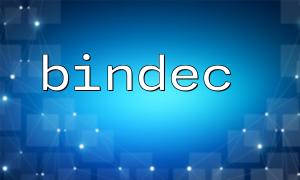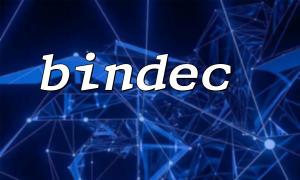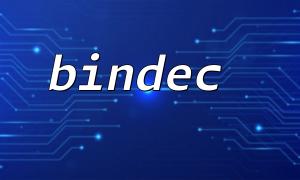bindec() does not strictly validate the string. If the string contains characters other than 0 and 1, the function will ignore from the first non-0 or 1 character, or return unexpected results.
Example:
<?php
echo bindec("10102"); // The result will still be 10 because '2' is ignored
?>
This means that if the input string contains unexpected characters, it may result in an inaccurate conversion without throwing an error.
If there are spaces or invisible characters at the beginning or end of the binary string, it can also affect the result. For example:
<?php
echo bindec(" 1010 "); // Output is 10, leading/trailing spaces do not affect the result
echo bindec("\n1010\n"); // The result may depend on the environment
?>
While spaces generally don't cause issues, certain special characters (such as tabs or hidden non-binary characters) may cause incorrect results.
bindec() only processes strings, and if an empty string or a non-string type is passed, the behavior may differ from what is expected:
<?php
echo bindec(""); // Returns 0, no error
echo bindec("abc"); // Returns 0, because there are no valid binary characters
?>
Therefore, ensure that the input is a valid binary string before using the function.
bindec() does not throw exceptions or warnings. If a non-string type is passed, PHP will attempt to convert it, which may produce unexpected results:
<?php
echo bindec(1010); // Treats the number as a string, result is the same as bindec("1010")
?>
However, if the data source is unreliable, it is recommended to perform type checks and filtering first.
Sometimes, the problem is not with the function itself, but with a misunderstanding of the conversion result. For example, if you expect the binary input to be signed, but bindec() returns the unsigned decimal value.
bindec() only processes strings consisting of 0 and 1, other characters will be ignored or cause unexpected results.
No errors or warnings are thrown; issues typically arise from incorrect input data format.
Ensure that the input is a valid binary string, and validate or clean the data when necessary.
Understand the behavior and limitations of the function to avoid result discrepancies caused by type conversion or misunderstanding of sign bits.












